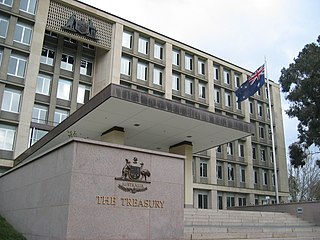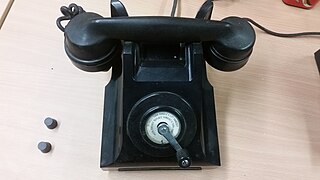Sir Robert William Cole was a senior Australian public servant. He held secretary-level positions in four departments or agencies during the Fraser Government and Hawke Government years.
The New Year Honours 1901 were appointments to various orders and honours of the United Kingdom and British India.
The King's Birthday Honours 1941 were appointments in the British Empire of King George VI to various orders and honours to reward and highlight good works by citizens of various countries. The appointments were made to celebrate the official birthday of The King, and were published on 6 June 1941.
Frank Gordon Thorpe, was a senior Australian public servant. He was Public Service Commissioner between 1936 and 1947.
The 1924 New Year Honours were appointments by King George V to various orders and honours to reward and highlight good works by members of the British Empire. They were published in The London Gazette on 1 January 1924.
James Richard Collins was a senior Australian public servant, best known for his time as head of the Department of the Treasury
The New Year Honours 1926 were appointments by King George V to various orders and honours to reward and highlight good works by members of the British Empire. They were published on 29 December 1925.
The King's Birthday Honours 1933 were appointments by King George V to various orders and honours to reward and highlight good works by members of the British Empire.
The King's Birthday Honours 1932 were appointments by King George V to various orders and honours to reward and highlight good works by members of the British Empire. The appointments were made to celebrate the official birthday of The King. They were published on 3 June 1932.
The 1937 New Year Honours were appointments by King George VI to various orders and honours to reward and highlight good works by citizens of the United Kingdom and British Empire. They were the first honours of George VI's reign and were announced on 29 January 1937.
The 1939 New Year Honours were appointments by King George VI to various orders and honours to reward and highlight good works by citizens of the United Kingdom and British Empire. They were announced on 30 December 1938.
The 1926 Birthday Honours were appointments by King George V to various orders and honours to reward and highlight good works by citizens of the British Empire. The appointments were made to celebrate the official birthday of The King on 3 June, but it was announced on 20 May that due to the national strike, the King had approved the Prime Minister's recommendation to delay the publication of the list until 3 July 1926. The honours were effective to 5 June 1926. Per standard practice, Sir Paul Chater, who died 27 May 1926, still received the honour of Knight Commander of the Order of the British Empire as he would have received the honour if he had survived.
The 1929 New Year Honours were appointments by King George V to various orders and honours to reward and highlight good works by citizens of the United Kingdom and British Empire. They were announced on 26 February 1929. The announcement of the list was delayed two months by the health of the king, who fell ill with septicaemia in November 1928. There were no recipients of the Royal Victorian Order and only two recipients in the military division of the Order of the British Empire.
The 1930 New Year Honours were appointments by King George V to various orders and honours to reward and highlight good works by citizens of the United Kingdom and British Empire. They were announced on 31 December 1929.
The 1932 New Year Honours were appointments by King George V to various orders and honours to reward and highlight good works by citizens of the United Kingdom and British Empire. They were announced on 29 December 1931.
The 1933 New Year Honours were appointments by King George V to various orders and honours to reward and highlight good works by citizens of the United Kingdom and British Empire. They were announced on 30 December 1932.
The 1934 New Year Honours were appointments by King George V to various orders and honours to reward and highlight good works by citizens of the United Kingdom and British Empire. They were announced on 29 December 1933.
The 1936 New Year Honours were appointments by King George V to various orders and honours to reward and highlight good works by citizens of the United Kingdom and British Empire. They were announced on 31 December 1935.
The 1924 Birthday Honours were appointments by King George V to various orders and honours to reward and highlight good works by citizens of the British Empire. The appointments were made to celebrate the official birthday of The King, and were published in The London Gazette on 3 June 1924.
The 1927 Birthday Honours were appointments by King George V to various orders and honours to reward and highlight good works by citizens of the British Empire. The appointments were made to celebrate the official birthday of The King, and were published in The London Gazette on 3 June 1927.




